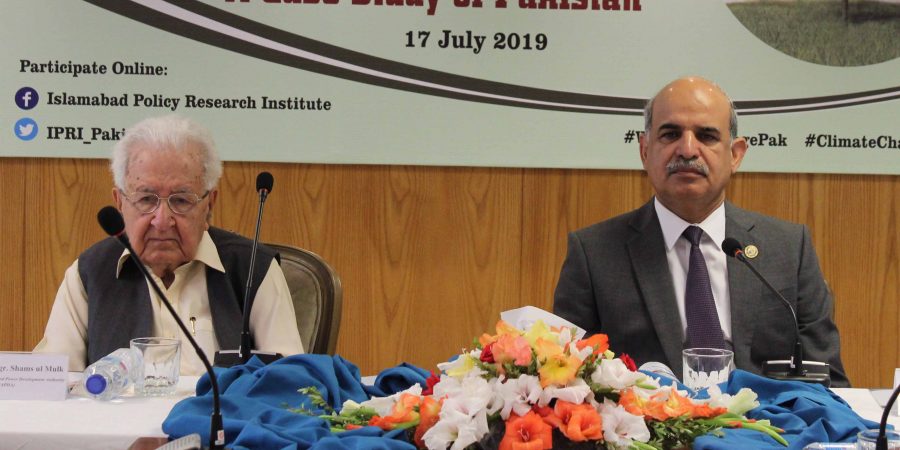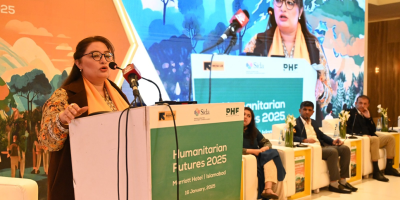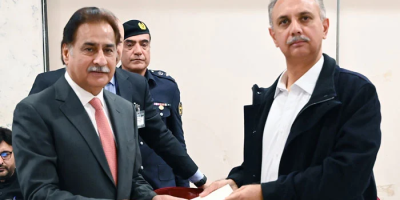Water needs to be treated as a commodity, say experts

ISLAMABAD, JUL 17 (DNA) –Water is a commodity and must be treated as such. Pakistan cannot continue business as usual water management. It is vital to reform water governance laws, policies, and institutions and infrastructure investments. The National Water Policy 2018 needs to be implemented in letter and spirit.
The state needs to end its monopoly on water; invest immediately & heavily in storage capacity and water enforcement. Pakistan needs to be prepared for India’s attempts of using water as a coercive strategic tool. The state and citizenry need to become water wise.
These were the recommendations put forward by the speakers at the National Dialogue Series Roundtable on “Managing Hyphenated Climate and Water Challenge: A Case Study of Pakistan”organised by the Islamabad Policy Research Institute here in Islamabad.
In his Keynote Address, Engr. Shams-ul-Mulk, former chairman of Pakistan’s Water and Power Development Authority (WAPDA), said that a conference on water issues is an important need of the country in order to take concrete steps to conserve water for next generations of the country.
Sharing the history behind the Indus Waters Treaty and role of WAPDA in the development of dams like Tarbela and Mangala, he stressed that “when it comes to water issues, leadership, vision and capacity are very important.”
He said that “water security is an important and growing challenge for Pakistan, and one that extends far beyond the traditional water sector. It influences diverse aspects of economic and social development, as well as national and regional security.”
He warned that Pakistan’s economic growth will not increase if dams are not constructed. MrMulk was of the view that those who oppose the construction of large dams are not aware of the looming water crisis in the country and don’t want Pakistan to progress.
“Enemiesof Pakistan have disabled and crippled our efforts so much that we have not been able to build any new dams,” he said. Engr. Mulk recommended that Kabul River should become a “river of friendship” and joint cooperation initiative between the people of Afghanistan and Pakistan.
Welcoming the speakers President of IPRI Vice Admiral (Retd.)Khan Hasham bin Saddique highlighted that objectives of The National Dialogue Series is to debate and proffer policy recommendations on important national issues.
He said that climate change and water security are urgent contemporary challenges whose socio-economic and food security impact on Pakistan would be grave.
He said that numerous studies have concluded that climate change is likely to lead to floods, droughts, rising sea levels, heat waves, melting of glaciers etc. Dilating upon water security, he said that Pakistan is blessed with adequate surface water and the 4th largest grand water aquifer.
However, population growth, urbanization, and poor water management have caused water scarcity with only 1100 cubic metres per person water available in Pakistan. Urgent steps are needed to conserve, build new storages, recycle and adapt to new realities.
He feared that “transboundary water disputes are ticking time bombs which need to be resolved diplomatically.” He emphasised that policies need better implementation to address the issue.
Lixin Gu, Sustainable Development Program Leader from the World Bank Pakistan, outlined thatthe availability of water is crucial for Pakistan’s agriculture growth.
He informed that the sector consumes around 95 percent of the country’s water resources.At the same time, per capita availability of usable water is decreasing, primarily because of population growth, pollution and inefficient use of water resources.
Gu pointed out that “Pakistan is well endowed with water – only 16 countries have more water – but because Pakistan is the world’s sixth most populous country, water availability per person is comparatively low.
Others speakers also spoke on the occasion and highlighted the importance of water management.=DNA
===========
Related News

PM’s aide calls for national climate risk management strategy to tackle disasters
ISLAMABAD, Jan 16 (APP/DNA):Coordinator to the Prime Minister for Climate Change, Romina Khurshid Alam emphasizedRead More

PTI demands CJP-led probe into May 9, Nov 26 events, political prisoners’ release
ISLAMABAD, JAN 16 (DNA): The Pakistan Tehreek-e-Insaf (PIT) on Thursday finally presented its demands inRead More


Comments are Closed